Table of Contents
Last update on
Some time ago, we told you about five web professionals who put WP Rocket at the core of their performance strategy. They showed us that using a powerful caching plugin is crucial to support conversion and make customers happy, whether you are a marketer, a web developer, own a tech blog, or run a web agency.
Today we want to tell a new success story. We interviewed a web professional who has developed hundreds of sites and who has a well-known name in the WordPress community (you probably met him at some WordCamp!).
Interview with Topher DeRosia
Here is a Q&A interview with Topher DeRosia, an experienced WordPress developer, now Senior Developer Advocate at the eCommerce company BigCommerce. He is also the man behind HeroPress, the publication that “reaches out to people in the WordPress community who feel marginalized as a result of culture, language, gender, or anything else.“
Hi, Topher! Tell our readers a bit about yourself:
I’m Topher DeRosia, a Senior Developer Advocate at BigCommerce, a multi-platform eCommerce company. I began developing websites in 1995, and WordPress exclusively since 2010. I have built hundreds of WordPress sites.
Q1. When did you start using WP Rocket, and how has it helped your business?
Caching has always been an interest of mine as website performance is a key attribute of a quality web developer. An eCommerce site needs to be cached properly as it generates income. Not only do they have to provide information very quickly, but they also need to have dynamic features that function very quickly.
I started using WP Rocket personally years ago, probably soon after it was first released. It was so much better than the alternatives at the time; it was a breath of fresh air. I installed it on as many client sites as I could. The other options had so many settings that it was very easy to break them, and my clients were always messing up their caching. With WP Rocket, they couldn’t.
Q2. Did you use other caching plugins before WP Rocket?
Before WP Rocket, the only option I recommended was WP Super Cache. It’s still quite powerful, but as I mentioned above, it has far too many moving parts to trust in the hands of a client.
Q3. What are the main benefits you obtained thanks to WP Rocket?
For my personal sites, I’ve been using my host’s built-in caching for quite some time rather than a plugin like WP Rocket.
This interview prompted me to do some experiments on an eCommerce store I’m building that’s hosted there right now.
The site’s not quite done yet—some large images are impacting the Page Speed score—regardless, I found some very interesting results.
I first tested my site using my host’s built-in caching, and got this result:
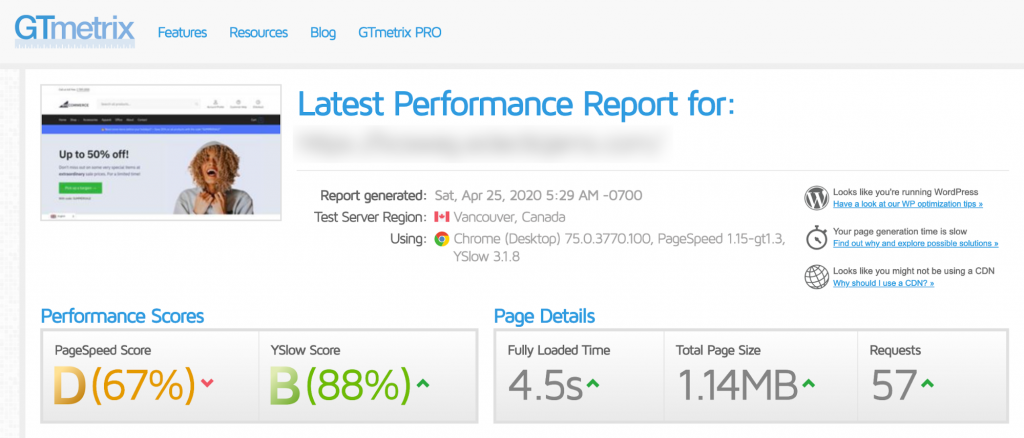
Note the 4.5 seconds of fully loaded time.
Then I tested with no caching whatsoever, and got this result:
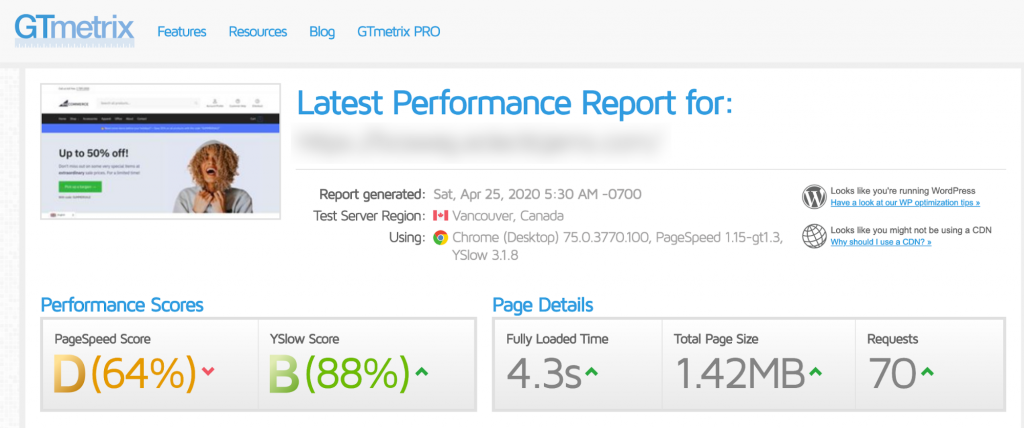
I was quite surprised to get a fast load with no caching at all. Then I tried it with WP Rocket alone:
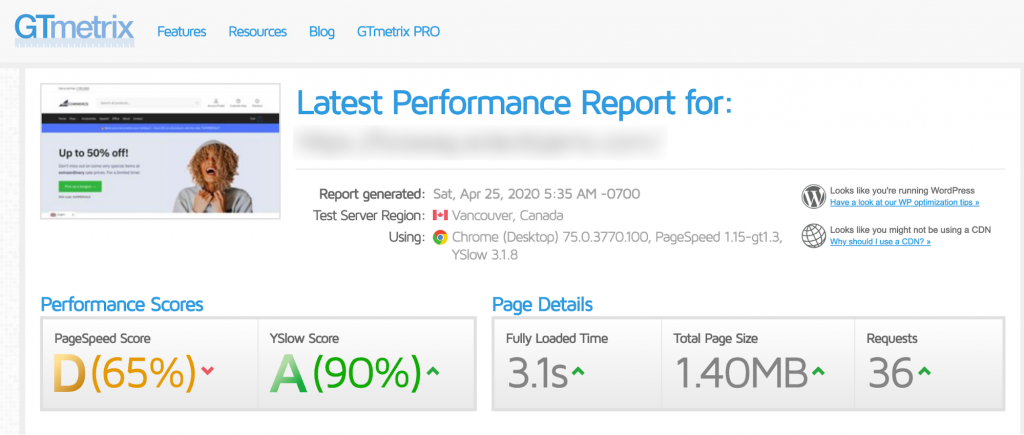
That’s a dramatic change!
Lastly, I ran it using WP Rocket and only the Memcache option built into my host’s Optimizer.
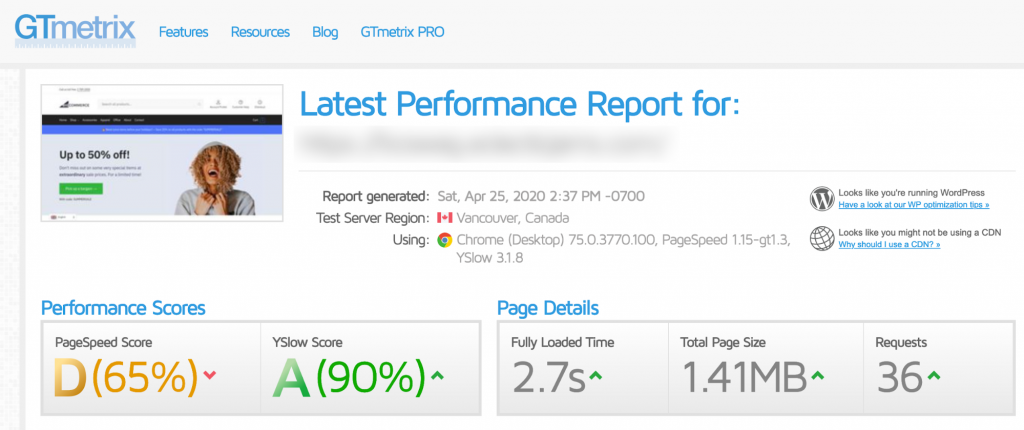
According to these tests, the best bet is to run WP Rocket as the caching plugin, and utilize whatever server-side options are available (like Memcache) at the same time. I very nearly cut my load time in half with WP Rocket over the caching provided by my host.
As another experiment, I ran the same tests on my personal site on the same server as the other.
Host caching only:
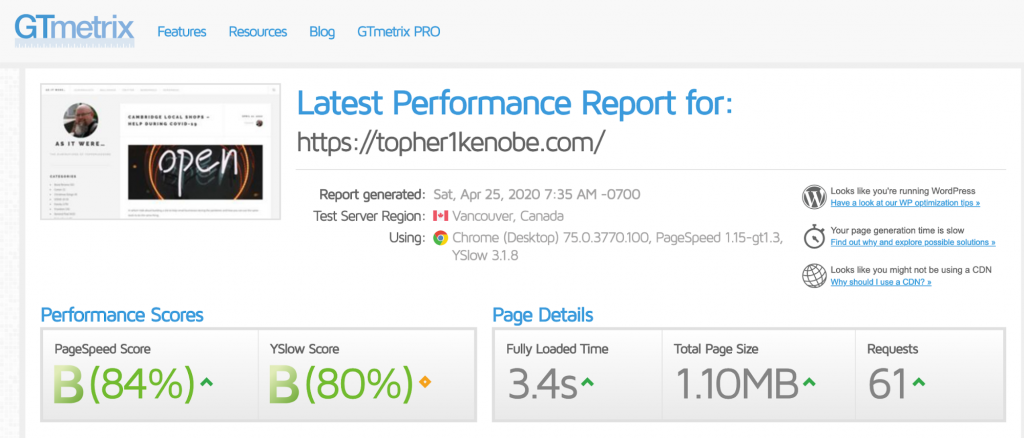
No caching:
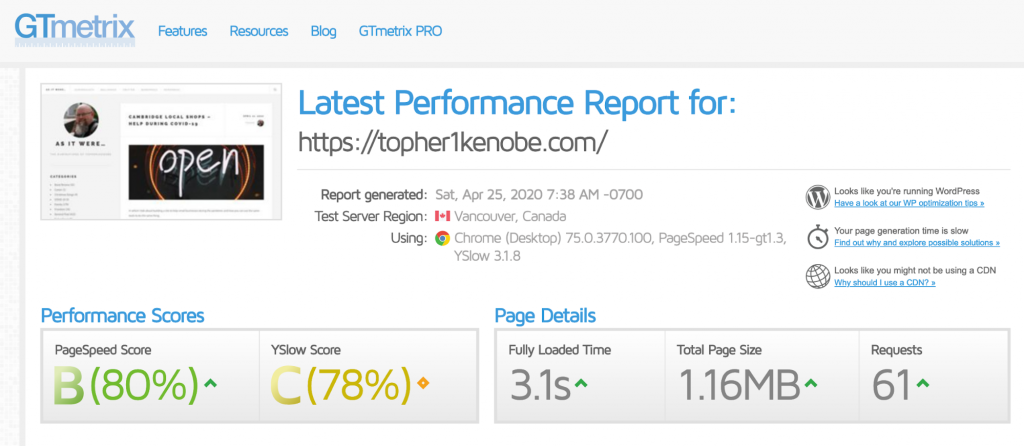
WP Rocket only:
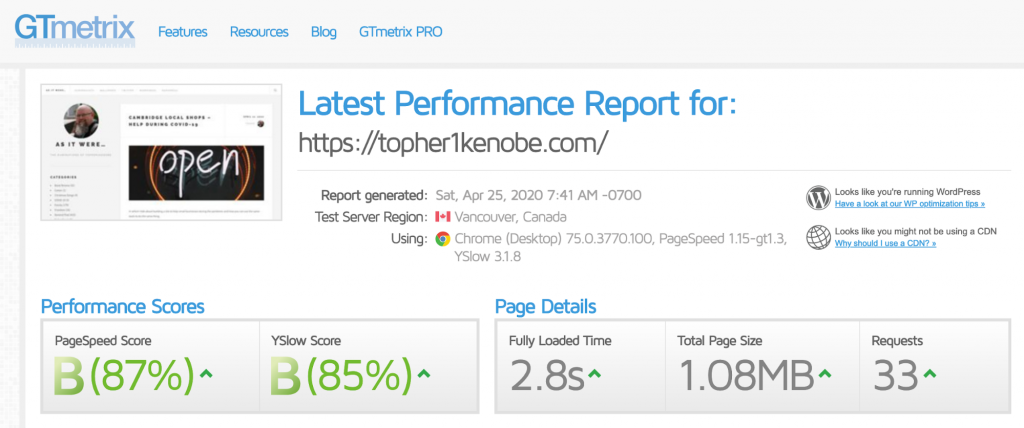
WP Rocket with Memcache from the host:
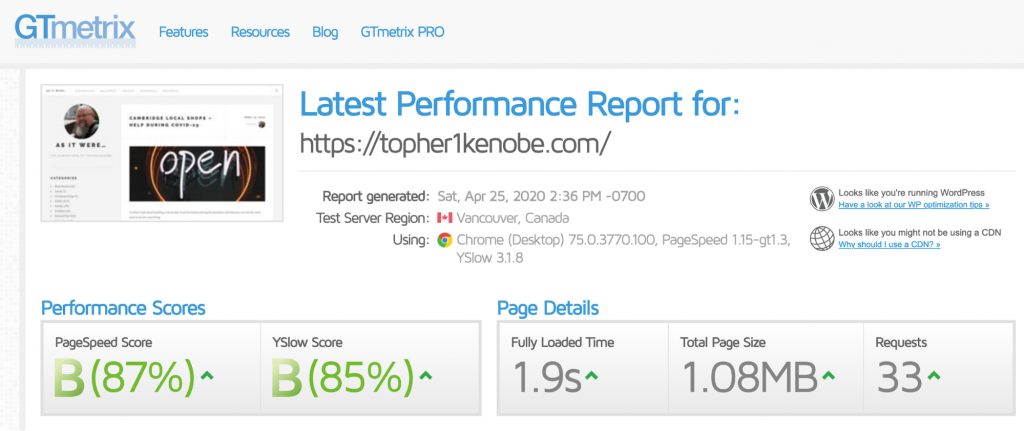
Once again, I cut my load time nearly in half. WP Rocket is clearly an asset, even when the host provides built-in caching.
Q4. What is your favorite WP Rocket feature, and why?
Hands down, ease of use. For one thing: it has good default settings. Installing it, without making any settings changes at all, immediately speeds up your site. But when you do need advanced settings, it’s very easy to find them, turn them on, and test.
My second favorite feature is built-in support for BigCommerce for WordPress.
Caching is different for eCommerce than for regular websites, and WP Rocket stepped up early to help store owners by making caching work for their store, no configuration required.
This is not only good for store owners but really shows a commitment to the WordPress community by supporting other plugins and making WordPress as a whole a better platform.
Q5. What other WordPress plugins are you using on your site?
Here are some of the plugins I run on my personal websites, apart from WP Rocket:
- Ninja Forms
- Google Analytics for WordPress by MonsterInsights
- Yoast SEO
- Public Post Preview
- Regenerate Thumbnails
- Stream
Q6. What suggestions would you give to other business owners and web developers that want to take web performance seriously?
Pay attention to caching. Caching is a must for any dynamically generated site like WordPress sites, and WP Rocket is the easiest and best way to get that done.
After that, focus on general page speed optimizations:
- Use appropriately sized, properly compressed images
- Have scripts load after the content
- Minimize CSS and JavaScript
- Follow good browser caching rules.
Q7. You’re working for BigCommerce, one of the leading eCommerce website builders, which now has its WordPress plugin. What suggestions do you have for eCommerce owners that want to boost the performance of their WordPress online stores?
Caching an eCommerce store is different because there are pages that should not be cached, like the cart, checkout, and personal account pages.
While WP Rocket does a wonderful job taking care of this for you, I still recommend learning about what it’s actually doing, as well as what it means to have some pages cached and others not.



